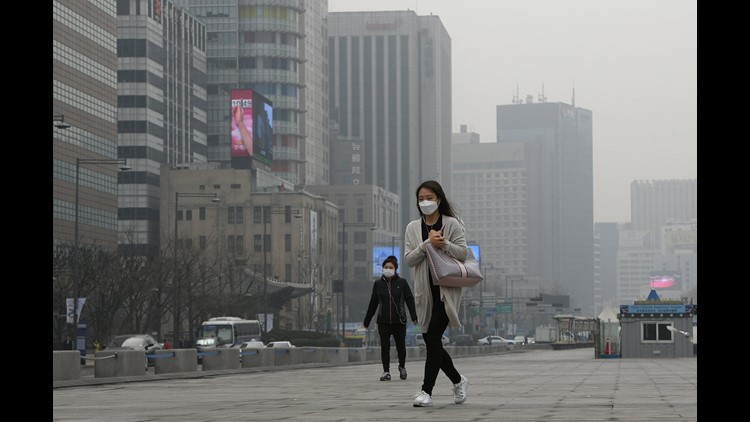South Korea will shut down up to a quarter of its coal-fired generators for three months this winter in an effort to curb air pollution.
The country’s Ministry of Trade, Industry and Energy said Thursday that between eight and 15 generators will close from December 1 to February 29, with the remainder operating at a maximum 80% capacity.
There are 13 coal plants in South Korea, according to the Korea Power Exchange, and there can be multiple generators within one plant
It will be the first time South Korea has closed coal-fired generators during winter — when demand for electricity is at its highest — and the ministry said the move would reduce fine dust emissions by 44% from last year.
Dirty air is a serious problem in South Korea. In March, the government declared air pollution a “social disaster” and passed a set of bills to tackle the issue after seven cities experienced record-high concentrations of harmful PM 2.5 particles, according to Reuters.
PM 2.5 are microscopic particles smaller than 2.5 micrometers in diameter which are considered particularly harmful to humans because they are small enough to lodge deep into the lungs and pass into other organs.
South Korea’s air quality ranks among the worst of Organization for Economic Cooperation and Development (OECD) countries, with some of the highest levels of particulate matter pollution.
While pollution in South Korea is being driven by factors such as factories, car exhausts and coal heating, many in the country blame emissions blown across the Yellow Sea from China for exacerbating poor air quality.
South Korea has 58 publicly owned coal-fired generators. A total of 46% of the country’s energy is generated from coal, according to the largest electric utility, Korea Electric Power Corporation.
The South Korean government has pledged to move away from coal as public anger over increasingly hazardous levels of pollution grows.
Just 2% of the country’s energy sector is currently renewable, the International Energy Agency told CNN in March. But the government has promised to boost renewable energy to 20% by 2030.
The government has also stopped construction of new coal plants and said it would shut down 10 aging coal plants in the country by 2022.
But South Korea also invests more than $1 billion per year in overseas coal-fired power, according to a recent report on coal subsidies among G20 nations.
This week, Greenpeace claimed that South Korea’s financing of foreign coal plants was projected to cause 47,000 to 151,000 premature deaths over 30 years in countries including Vietnam, Indonesia and Bangladesh.



